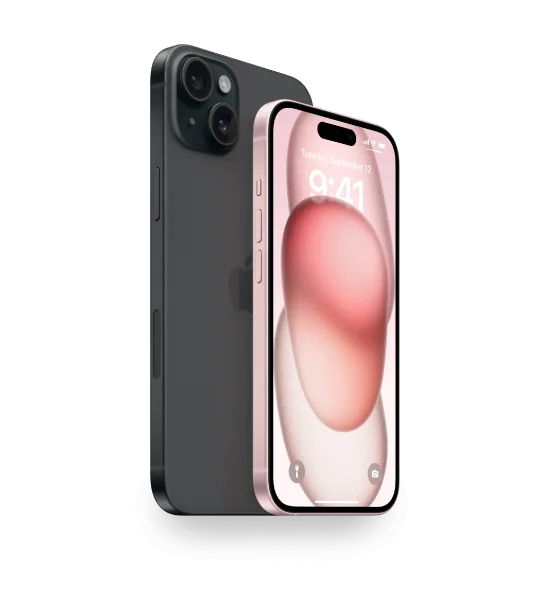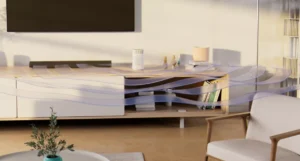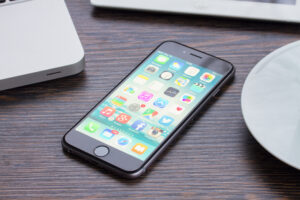6 Ways Tablets Are Better Than Laptops
Table of Contents
Whether you choose to use tablets vs. laptops is a personal choice, depending on what you plan to use your device for, where you intend to use it, and how much processing power you need. While laptops were once the pinnacle of electronic convenience, today the many pros of a tablet have demoted laptops to the work or home office. If you’re on the go, tablets are the best devices almost every time.
What’s the Difference Between a Laptop and a Tablet?
Before we dive into the tablets vs. laptops debate, it’s important to know the differences between the two devices. A laptop is a portable computer with its own physical keyboard and a trackpad for a mouse. A laptop is hinged, so the monitor stands up when open and the keyboard lies flat. while it has a battery, a laptop is usually plugged into a power outlet.
A tablet, in contrast, is usually a slim device that resembles a large smartphone. Tablets have no mouse, using a touchscreen instead. Tablets come with a virtual keyboard, although some come with physical keyboards. Due to their small size, tablets do not have upgradeable hardware like laptops, although, in fairness, most people simply replace their laptops when they need better hardware, so this feature isn’t overly important.
Pros of a Tablet
In the tablets vs. laptops debate, the tablet comes ahead as a more versatile, flexible, and child-friendly device. While laptops are useful as portable desk computers, they simply cannot compare when it comes to these six features:
Lightweight Portability
The average laptop weighs five pounds or more. In contrast, a tablet weighs about a pound. Which of these would you rather carry around all day? Lugging a laptop around requires much more work, especially when you consider that laptops require their own carrying cases or backpacks to transport safely. One of the great pros of a tablet is you can just grab it and go, without having to stuff it into a backpack.
Ease of Use
Imagine you’re on a plane, in the passenger seat of a car, or sitting on a train, when for some reason you need to check something on your electronic device. Trying to use a laptop in any of these situations is an exercise in frustration. You have to pull the device out of its bag, balance it so it’s flat, and open it up so you can see the monitor. Now imagine you’re the person sitting next to someone trying to do this. It’s no fun for anyone.
With a tablet, you just hold it. No mess, no fuss. You’re not trying to balance a five-pound device on your lap or the food tray of a plane seat (trust us, they’re not designed for laptops). You can even get up and walk around while using a tablet. Try doing that with a laptop without injuring yourself!
Functionality
The main advantage the pro-laptop crowd brings up in a tablet vs. laptop debate is functionality. It’s true that a laptop has more memory and processing power than a tablet. Here’s the thing though — do you really need that much power on the go? A tablet occupies the sweet spot between functionality and convenience. It’s less powerful than a laptop but offers more functionality than a smartphone while being just as portable.
Besides, a tablet can do most of what a laptop can do and more. A tablet can act as a video chat, e-reader, gaming system, email system, and word processor while also taking excellent photos and videos.
On-The-Go Connectivity
Both laptops and tablets can connect to WiFi networks. A tablet, however, comes with the option of a cellular data plan, just like a smartphone. This allows you to use your tablet outside of WiFi networks, making it the more convenient of the two devices.
Kid-Friendly Tablets
We’ve already discussed how laptops are bulky and difficult for adults to use on the go. Children have even more difficulty using laptops anywhere other than at a desk. Tablets are smaller, easier for little hands to use, and give children access to a wide range of educational apps they can use at home or on the go. (If you are using your tablet to keep the kids entertained on a road trip, they might as well be learning something, right?)
Better Battery Life
Despite being smaller than laptops, tablets have much longer battery lives. This is partly due to the demands a laptop’s increased processing power puts on the device’s battery. A good laptop might be able to run for six hours on battery power, but many won’t even last that long. Some will only give you an hour or two of use before the battery drains.
No so with a tablet. A fully charged tablet battery will last an entire day, and probably still have a charge when you plug it in at night. This would be one of the pros of a tablet under normal conditions, but it’s especially helpful when traveling. Who wants to try and find an outlet for a laptop power cord in a busy airport when you could just as easily use a tablet?
Tablets vs. Laptops
So which wins, tablets or laptops? If you’re only planning to use your device in your home, a laptop might be your better choice. Let’s face it though: very few people only use their electronic devices at home anymore. For anyone who likes to use their device on the go, the pros of a tablet win this debate hands down.
If you are considering trading-in and purchasing an Apple or Android tablet, or buying one outright, Victra offers the latest range from Apple and Samsung. Learn more or stop by a store near you for a look and feel.
.
Start your journey with us
From endless options to tailored solutions, we're here to help you every step of the way.

is a skilled Web Developer and Designer. He builds and designs websites that focus on best UI/UX practices. Justin is also a Verizon Product Expert at Victra, helping customers with Verizon products and services. His mix of design, coding, product, and general knowledge makes him a valuable and knowledgeable team member.





